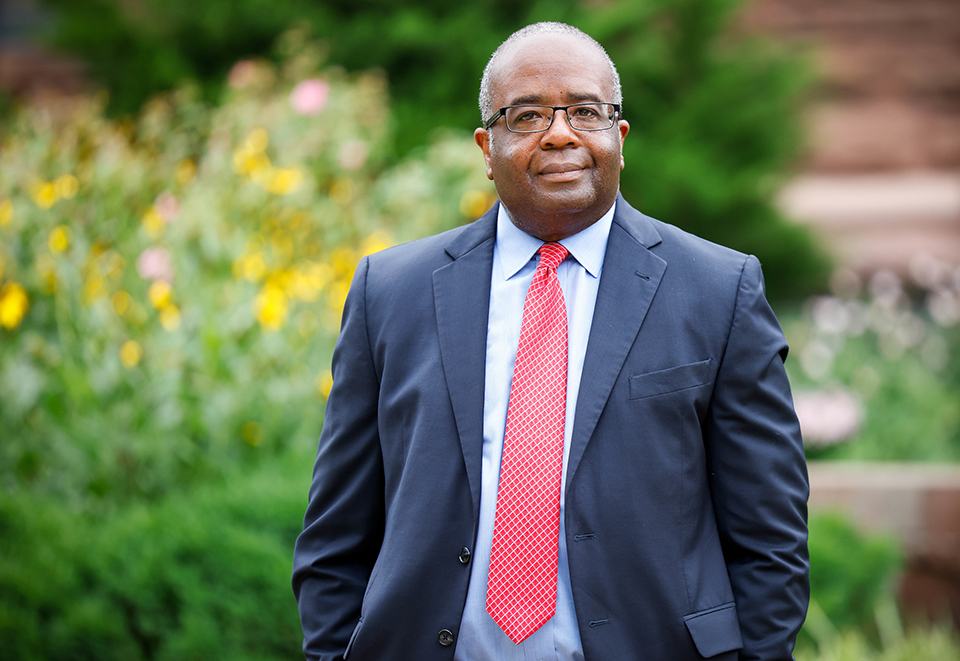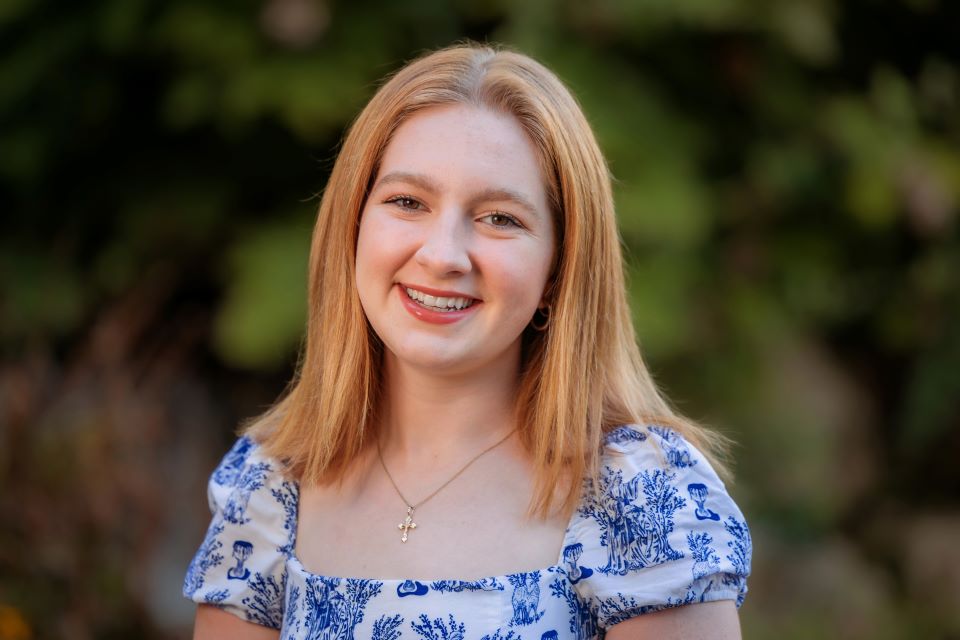SLU Professor Talks Civil Rights Movement, ‘Freedom of Choice,’ and Family’s Fight for Educational Opportunity
ST. LOUIS – A Saint Louis University professor recounts his family’s pivotal role in the Civil Rights Movement.
Travis Threats, Ph.D., professor and chair of SLU’s Department of Speech, Language, and Hearing Sciences, traces his roots back to Drew, Mississippi, where his grandparents, the late Mae Bertha and Matthew Carter, and their children were Delta sharecroppers. They lived on the Pemble plantation nine miles outside Drew in Sunflower County.

Travis Threats, Ph.D. Photo by Sarah Conroy.
Viewing education as a way out of the fields, Threats’s grandparents dared to sign freedom of choice papers and end segregation in the town’s public schools. In 1965, Threats’ mother’s younger siblings became the first Black students to attend Drew High School and A.W. James Elementary.
Most Mississippi school districts adopted freedom of choice plans to comply with federal desegregation mandates. In theory, “freedom of choice” allowed parents and students (over fifteen) to choose the school they or their children would attend. Local school boards were charged with administering the freedom of choice plans with clear directions about how this was to be accomplished, including developing community support and taking the steps necessary to protect all persons exercising their rights under the plan.
However, when Black parents like the Carters tried to file freedom of choice forms on behalf of their children, they often faced immediate economic repercussions and emotional and physical harassment. The Carters faced much opposition not just from the plantation owner but also from the community. Their home was shot up in the middle of the night. They were even kicked off the plantation.
Education was the way out of the cotton fields, and they would not be intimidated, Threats said. He fondly remembers his grandmother’s presence at his graduation from Northwestern University, where he had earned a doctorate in speech-language pathology. To his grandmother, Threats said his achievement marked the ultimate pinnacle of academic success. His grandparents had a third-grade education and were taught only enough to read the Bible, he said.
“There were these limits on how many tickets you could get, and they tried to stop them at the door,” he recalled of his graduation. “My late wife at the time said, ‘This woman was a sharecropper in Mississippi, and you’re going to deny this woman the ability to see her grandson get his Ph.D.?’ And they said, ‘Okay, they can go in.’”
The Carter family’s lawsuit against Drew, Mississippi, schools in 1967, with the help of an NAACP legal team, struck final blows to segregation in Mississippi. The court decision came down in 1969, throwing out freedom of choice plans and ordering the schools’ desegregation. The family’s story was chronicled in national news reports and is also the focus of the book Silver Rights by Constance Curry.
Silver Rights won the Lillian Smith Book Award for nonfiction in 1996 and was a 1996 Robert F. Kennedy Book Award finalist. The book was named the Outstanding Book on Human Rights in North America by the Gustavus Myers Center for the Study of Human Rights.
The book is prominently displayed in Threats’ office next to another about his family – this one, a children’s book entitled The School, is Not White! by Doreen Rappaport – and a photo of former President Bill Clinton and the Carters at an awards ceremony held in their honor.
Threats has made history as only the second African American to rise in rank from assistant to full professor at SLU. He has served as the American Speech-Language-Hearing Association’s (ASHA) liaison to the World Health Organization (WHO) since 1999. In 2022, he was awarded the highest ASHA bestows award, Honors of the Association.
Threats emphasizes the silent yet pivotal role his grandfather played in the family’s struggle for educational opportunity.
“My grandfather didn’t get a write-up in the New York Times, like my grandmother did upon her passing, but he is central to the story,” Threats said. “He was in the most danger; without him, none of this would’ve been possible.”
Latest Newslink
- Kathryn Mitchell Pierce, Ph.D.: 1955-2025Kathryn Mitchell Pierce, Ph.D., associate professor of educational studies, died Wednesday, Dec. 10, 2025. She was 70 years old. Pierce joined Saint Louis University in 2015 as an assistant professor in the School of Education. Initially a literacy specialist in the undergraduate program, she eventually taught and mentored across all levels at the School of Education. She became an associate professor in 2022.
- Saint Louis University Student Speaks About Leadership and Disability at Ignatian Family Teach-In for JusticeSaint Louis University senior Grace LoPiccolo shared her personal leadership journey at the 2025 Ignatian Family Teach-In for Justice. The event, held annually in Washington, D.C., is the nation’s largest Catholic social justice advocacy day.
- SLU Research Shows Surge in Alcohol-Related Liver Disease Driving ‘Deaths of Despair’Researchers at Saint Louis University School of Medicine say deaths from alcohol-related liver disease have surged in recent years, and the increase is hitting people without a college degree the hardest. While nearly every demographic group is seeing higher death rates—including those with college degrees—the gap between economically disadvantaged groups and more affluent ones is growing, according to new research.
- Saint Louis University Joins Multi-Disciplinary Research Team to Enhance Stress Resilience in SorghumSaint Louis University is part of a multi-disciplinary team, led by the Donald Danforth Plant Science Center, to deepen the understanding of sorghum, a versatile bioenergy crop, and its response to environmental challenges.The U.S. Department of Energy (DOE) Biological and Environmental Research (BER) program supports the three-year $2.5 million project for Genomics-Enabled Understanding and Advancing Knowledge on Plant Gene Function. Saint Louis University will receive $437,039 for its portion of the study.
- SLU Graduates Celebrated at Midyear CommencementSaint Louis University celebrated its Midyear Commencement on Saturday, Dec. 13, inside Chaifetz Arena. More than 1,900 guests watched as 600-plus SLU students walked across the stage and left as graduates.
- Why Do Raccoons Cross the Road? SLU, St. Louis Zoo Research Shows They Don'tA new study led by researchers from Saint Louis University, the Saint Louis Zoo, and partner organizations set out to understand how raccoons use space in one of the nation's largest urban parks.













